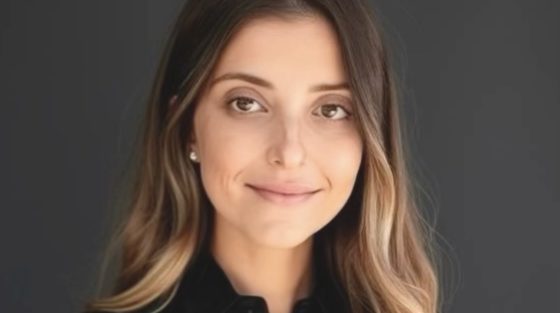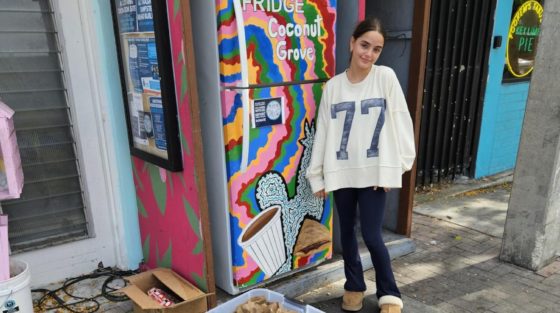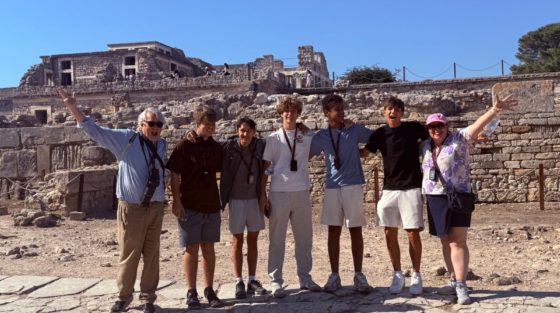Students Take Action for Climate Change

Upper School students are making a case for climate change, taking classroom learning into the community and engaging in projects and activities that are sure to make a global impact.
On Saturday, November 10, students in the Gulliver Field Studies Signature Academic Program served as panelists at the Youth Climate Action Summit held by The Tech for Global Good Student Board. The Summit, which brings together high school students to build a sustainable future for humanity, took place in California. Prep science faculty member Emilia Odife and students Elizabeth Vair ’19, Elizabeth Perez ’19, Chris McCormick ’21, Paul-Andre Emden ’21 and Jacob Stein ’21 participated via Skype from the Prep Campus.
Gulliver students presented to a sold-out audience of 500 students, teaching about the effects of climate change on coral reefs. A sample of the Gulliver Field Studies program’s coral tree was sent to California for display at the Summit.
The following day, Upper School visual arts students took part in Underwater HOA, an art initiative created by environmental artist Xavier Cortada to spread awareness about sea level rise. Gulliver was the first of four South Florida schools to paint an intersection street mural with an Underwater HOA marker at SW 72 Avenue and Killian Drive in the city of Pinecrest. These markers indicate approximately how many feet water needs to rise before that specific area is completely underwater. The students worked under the oversight of Prep Visual Arts Department Chair Stacy Goldman and in collaboration with Cortada, the Village of Pinecrest and Pinecrest Gardens. See photos of the students’ environmental art project. Drone photos by Kate Navarro ’19
As part of this large-scale participatory project, during the week of Art Basel (December 2-9) Killian Drive will become known as “Elevation Drive.”
Elizabeth Vair ’19 participated in both the Summit and street mural projects, and has worked closely on conservation projects throughout high school. “Projects like these can affect climate change, as they provide a means to incorporate the help of people who otherwise may feel as though they are unable to provide it,” she said. “Most of the time, I hear people divide the sciences and arts, and I, too, have been guilty of this. However, the arts are a means of communication, something that the sciences can fall short on. These projects offer a means to bridge the gap between the arts and sciences by providing a communications outlet for a problem that is too often attributed solely to the sciences. By incorporating projects like the mural, people who may otherwise dissociate themselves with this problem due to its scientific roots have a way in which they can contribute to finding a solution. To find a solution and reverse the effects of climate change, people must first know the severity of the problem, and at the very least, that it does exist.”
In addition to being involved in the Gulliver Field Studies program, Elizabeth has volunteered at Zoo Miami for the past four years as part of its Conservation Teen Scientist program. The program works to educate visitors on the importance of conservation and fighting climate change, and to provide ways that they can help from home.
“In my experience, many people do not recognize climate change for the imminent threat it is, but instead continuously frame it as a political issue, when in fact it is a problem that is rooted in science and should not be tied to politics,” Elizabeth said. “The UN recently released a report saying that the world only has 12 years to significantly combat the effects of climate change before the problem is irreversible. Therefore, I think it is imperative that today’s generation takes a stand in both fighting the problem and raising awareness about it. Denial, in regards to climate change, could be our downfall if we do not realize soon enough the extent that climate change will impact us, in both the near future and today.”
When it comes to classroom learning, Prep science faculty member Alan Piggot will teach his annual lesson on sea level rise as part of the curriculum for his Environmental Science Honors Class. Students will discuss the history of Florida and its tendency to flood, as the state has done numerous times during the past 1.5 million years.
Upper School students are also discovering ways to affect environmental change through the Environmental Club, which promotes awareness of the importance of caring for the environment and provides opportunities to do so. Students in the club, overseen by Piggot, also study marine sciences and prepare to compete in the annual National Ocean Sciences Bowl.


